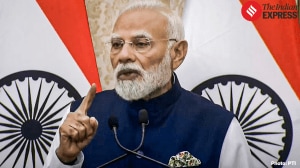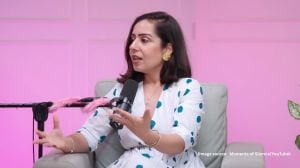Govt may ring in compensation for cell cos
Untangling the crossed wires on wireless telephony, the Centre is expected to concede two key demands of the cellular operators’ lobby ...

Untangling the crossed wires on wireless telephony, the Centre is expected to concede two key demands of the cellular operators’ lobby within days. A decision on a financial package to compensate them for the loss of their right to provide mobile services and on a hike in the cap on foreign direct investment (FDI) from the current 49 per cent to 74 per cent is expected to be taken shortly. It is reliably understood that the Prime Minister has put his imprimatur on a package to be finalised by the Finance Minister.
The compensation figure is currently being worked out, although it is expected to be way below the Rs 17,000 crore being demanded by the Cellular Operators’ Association of India. The government has also taken a decision in principle to hike the FDI cap after the home ministry has withdrawn its earlier objections based on national security concerns.
Cellular operators have sued the government over its move to grant limited mobility and, recently, full mobility to basic or fixed line service providers through the Unified Access Service Licence regime that was notified around a month ago. Unified access licensing was steered by Telecommunications Minister Arun Shourie and Telecom Regulatory Authority of India (Trai) chairman Pradip Baijal with the stated aim of furthering teledensity and ending litigation in the telecom industry.
The new licensing regime was duly cleared by an empowered group of ministers on telecom (GoM) in record time. The issues of compensation and FDI, key demands of the cellular lobby, were however referred to Finance Minister Jaswant Singh.
Basic operator Reliance Infocomm has already migrated to the unified access licence by paying up Rs 1,542 crore as licence fee and penalties for offering unrestricted mobility with a limited mobility licence. The other leading limited mobility basic operator Tata Teleservices has paid up around Rs 545 crore so far to migrate seven of its circles to full mobility under the new regime.
A leading cellular industry player said that the case pending in the Supreme Court was not about compensation, but a plea for support from the government. “We are flexible on the amount of the compensation…what is needed is an acknowledgement from the government that we need support to grow and help increase teledensity in the country,” he said.
At a GSM (global system for mobile communications) conference in the capital on Thursday, cellular major Bharti group chairman Sunil Bharti Mittal told the media that he was willing to look at a compensation figure lower than the Rs 17,000 crore that was being demanded by the cellular lobby. Senior officials in the Department of Telecommunications (DoT) said they had not received any intimation on the issue.
The Unified Access Service Licence regime is the first of a two-step move to an umbrella unified licensing regime that will cover all kinds of telecommunication services including long distance and Internet services. Currently, the new licence clubs only fixed and mobile telephony. The Supreme Court has fixed January 13 as the date for the next hearing of the cellular operators’ petition.





- 01
- 02
- 03
- 04
- 05








![Kadapa, [Andhra Pradesh], 27 May (ANI): Andhra Pradesh Chief Minister N Chandrababu Naidu and state Minister Nara Lokesh in conversation during the Telugu Desam Party's (TDP) annual three-day Mahanadu conclave, in Kadapa on Tuesday. (ANI Photo)](https://images.indianexpress.com/2025/05/tdp.jpg?w=300)

















